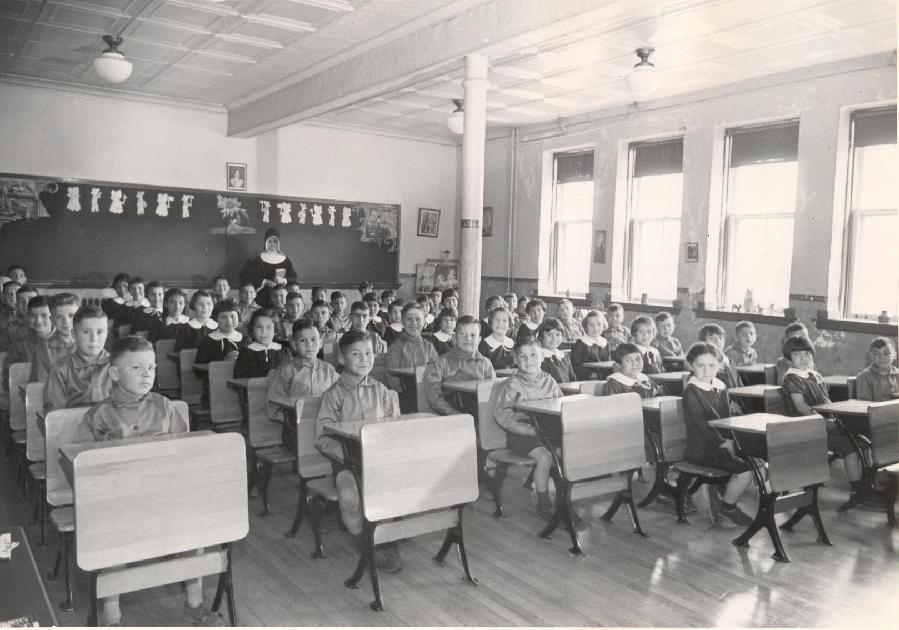
The Shubenacadie Residential School classroom in Nova Scotia.
Recognition of historic significance of the Residential School System and former Residential Schools crucial step on path to Reconciliation
The National Centre for Truth and Reconciliation (NCTR) welcomes the federal government’s official recognition that tragic harms inflicted through the Residential School System are a crucial defining part of Canadian history that must be understood and addressed in the present.
In an online ceremony today, the NCTR, Parks Canada and the federal Minister of Environment and Climate Change announced that the Residential School System is now formally designated as an “event of national historic significance.”
As part of this announcement, two former residential school sites, the former Portage La Prairie Residential School in Manitoba and the Former Shubenacadie Residential School in Nova Scotia, have been designated as National Historic Sites.
NCTR Director Ry Moran said, “Residential School Survivors, their families, and their communities faced a long and difficult struggle to ensure that the truth about Canada’s residential school system would be heard and acknowledged. Today’s designation is an important tool for all Canadians to learn about the cultural genocide that took place. At least 150,000 First Nations, Inuit and Métis children were taken away from their homes and their families. Only by understanding the past, can we walk on the path towards justice, an essential element of truth and reconciliation.”
The federal government designates events of national historic significance to recognize defining moments, both positive and negative, that shape the present.
In its Calls for Action, the Truth and Reconciliation Commission of Canada for national commemoration of Residential School sites and the history and legacy of Residential Schools. Today’s announcement came about through the advocacy of residential school Survivors.
Eugene Arcand, Residential School Survivor and Chair of the NCTR Governing Circle, said, “Having places where Residential School Survivors can be honoured, the children remembered, and the past acknowledged is a crucial part of reconciliation. Sites are essential to highlight to Canadians one of many reasons that First Nations, Métis and Inuit people are in the state we are in today, and to share our dreams to overcome our current challenges for a better future for everyone.”
Some former residential schools still stand while others are in disrepair or are completely gone. Some Survivors and communities wish to have the schools torn down while others prefer to use them for their community programs or residential school museums.
The designation announced today will help communities obtain support and funding to decide the best way they would like to remember and honour the Survivors and the children who never returned.
The Process
Communities and Survivors can apply to have a site or former residential school designated as a national historic site. The process for communities to apply for the designation is through Parks Canada (pc.clmhc-hsmbc.pc@canada.ca). Parks Canada will provide an historian who will develop a report about the site for the community and present it to the Historic Sites and Monuments Board for review. There is no deadline for communities to apply.
There is no one method to commemorate the school or the site. Communities and Survivors decide how the site or school will be remembered.
How NCTR Can Help?
This announcement begins the next phase in the NCTR’s work with Survivors and their communities. The NCTR is setting up a program to help navigate the designation process. The program will include a term Liaison position to aid communities in making an application and planning events and engagements to aid in the process of commemoration.
Find more information on designation of historic sites and events of national historic importance.
Sign up for NCTR Newsletter to receive updates on the NCTR Parks Program.







Supposed some of the students could be found and tell us about their story recently. Maybe a film about their time could be found, too.